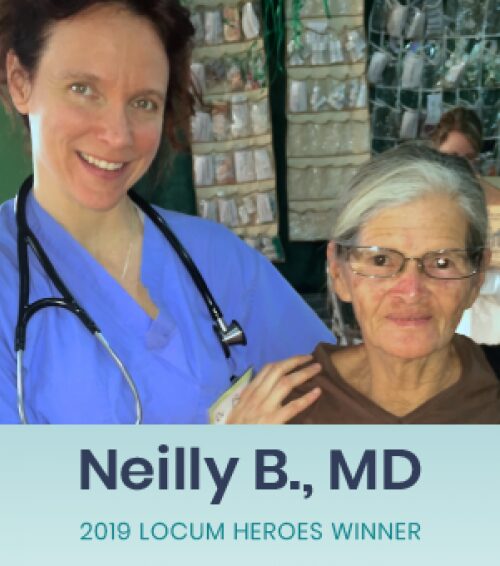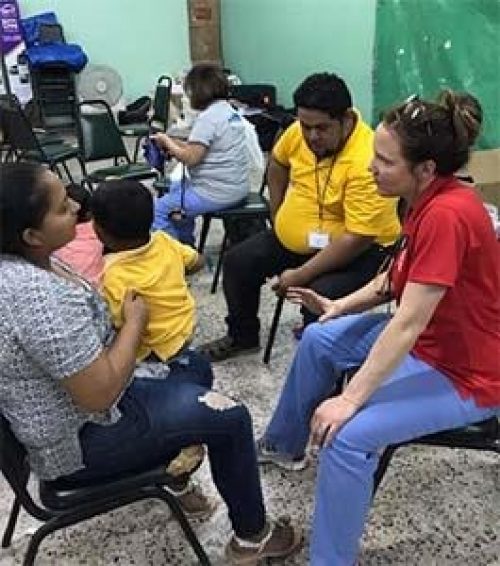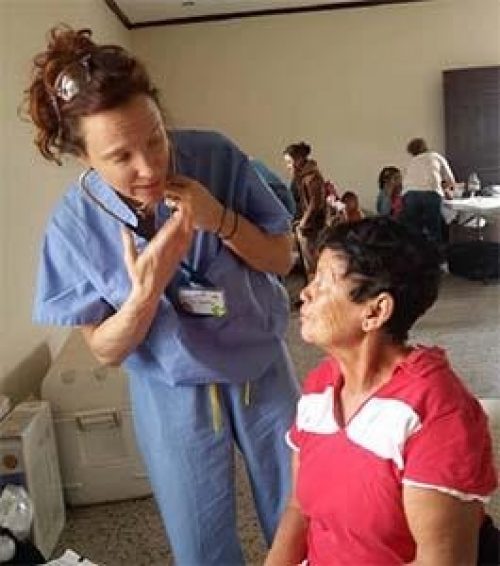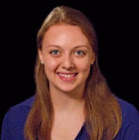
Earlier this year, Barton Associates announced the Locum Heroes campaign, with a focus on giving back to locum tenens providers who make a difference in their communities, near and far. In response, we received more than 100 nominations, each describing incredible stories of the ways that locum providers have spent their time on and between assignments.
Neilly Buckalew, MD was recognized as a locum hero by our judging panel of healthcare professionals for her work on locum tenens assignments, as well as her volunteer efforts with Honduras Hope Medical Mission. As a Barton Associates Locum Hero, Dr. Buckalew will receive a personal award of $2,500 and a donation of $2,500 will be given in her name to a charity of her choosing. Continue reading to learn more about Dr. Buckalew’s deserving story, as well as the charity that she selected.
Meet Dr. Neilly Buckalew
Neilly Buckalew, MD uses locum tenens work to have the flexibility to dedicate her free time as a volunteer for Pennsylvania-based Honduras Hope Medical Mission on an annual basis, beginning this work as a resident.
While in Honduras, the only tools they have available to treat and assess patients are “their minds, their hearts and their hands”. They have no advance testing and imaging, yet see 300 to 400 patients a day. Once, Dr. Buckalew financially sponsored a woman to get assessed in the city, as she was suspected to have gynecological cancer and needed a higher level of care than was available in this area. This woman is now cancer-free.
Prior to becoming a locum tenens physician, Dr. Buckalew was an environmental consultant, and did work with America Tribal governments on solid waste management as well as nuclear waste management. Understanding that the quality of the air, water, and health of the environment is tied to human health, Dr. Buckalew advocates for clean water and management of solid waste.
With Honduras Hope Medical Mission, Dr. Buckalew is developing the permaculture and introducing a honeybee enterprise for the local families on the two-acre parcel. The honey bees will produce the honey necessary to counteract the most frequent patient complaint, a cough from the burning of trash and plastic, which has increased local rates of respiratory disease.

It has been inspiring to read about your work with Honduras Hope Medical Mission. How did you start working with that organization?
When I was a medical student, one of my rotations was with the medical director for the program, Dr. Robert Potter, based in Pittsburgh, and he had told me about it. Ever since he told me about it, I just really wanted to do it. As soon as I could create the time to do it, I created an elective around that trip, because they had never had a physiatrist down there. It’s in an area where there is a lot of agricultural work, so there are a lot of injuries that a podiatrist could address. They were excited to have someone with a slightly different bend to their training.
And you’ve continued to go down there since, for the past 18 years. Have there been any memorable moments when you’ve been down there?
Oh gosh, there’s just so much. The first thing that struck me when I went there was just how gracious and deeply kind the people of Honduras are. You just see and feel it. My Spanish is okay, it’s not great, but it doesn’t matter. The communication and the kindness is just so evident in the way they smile. And that’s just so true of everyone.
This last time going there, I felt very blessed by the fact that the first patient who sat down for care was a woman I had cared for three years ago. I had sponsored her to go to the city as I was worried she had a gynecological cancer. It turned out that that was true. She was treated and is cancer free.
My third-to-last patient was a grandmother, and it’s just the way she smiled at me and trusted me down to every cell was just really heartwarming.
They always give me more than I think I could ever give them in every exchange. So it’s hard to narrow it down to one thing, because it’s just ubiquitous the generosity and gratitude there.
My last patient during that trip was a one-year-old girl who was very sick with a fever of 104 and was carried to the clinic by her older sister. One of the nurses that accompanied us on this trip, Charity, was critical in helping me bring the girl’s fever down. If I had been in the States, I would’ve admitted her to intensive care unit.
Deep down, I was worried for her and I was also exhausted from a full week of seeing hundreds and hundreds of patients. Thankfully, we were able to make her much more comfortable, wrapping her in cool towels. Somehow, magically, an ice pack appeared as we needed it, and we could get antibiotics started. No IVs, just slowly dribbling liquids into her and trying not to pour the medications or fluids into her lungs. We able to put her on a path to safely heal.
Every person who joins us on this trip is just a saint. It’s good to see how much everyone gets out of it, and the exchange is food for the soul. I feel selfish just saying that. I mean, they live in such dreadful, terrible poverty, but they don’t carry that as a weight in their life and every interaction with you. I certainly don’t want to criticize Americans in the United States, but I just feel like there is so much that people don’t realize that they have here and I wish that they did.
That’s great. We also know that locum tenens has fit into your schedule when it comes to planning this trip. Can you talk about why you continue to work locum tenens?
Before I did locums, I was working as an independent contractor for a freestanding rehab hospital. One of the big differences was all the meetings. You’re sitting in all these meetings and nothing’s happening. As a physician, that kind of drove me crazy. I mean, it wasn’t changing anything, it wasn’t improving patient care. It was just a lot of checking off boxes. That’s one of the things I got tired of, really. It took away from being a doctor.
So really, I do locums so I can be the most excellent doctor for my patients. With locums, I find that I can just concentrate on my patients 100%.
On some of my locum assignments, I end up being a little more involved in processes, but it always focuses around improving patient care based on the experiences and processes that could be improved.
I like being involved, but I like doing it in a meaningful way. I found I was able to engage in those discussions more meaningfully as a locums physician, because the other staff were really listening. Because they thought, “Well here’s a perspective that makes sense – this person comes here and runs into this barrier, maybe we should actually pay attention to it. “
We’re glad to hear that locum tenens work makes you a better doctor. There’s a bit of an uncertainty that some providers have about locum tenens. What would you say to those who are unsure about locums, especially if they weren’t taught about it in school?
Well first of all, I wish I had known that locum tenens existed when I came out as a resident. In a big academic center, it’s hard to know because the word “locum tenens” doesn’t exist.
I wish more residents actually knew about it, because I think it’s a good step to figure out what you want to do. You can recover from some of the heavy duty training, especially because mental health is a huge problem for doctors right now.
In fact, we have the highest suicide rate of any profession. Someone needs to unplug us. Locum work is a great way to recover! I breathe a big sigh of fresh air when I do locum assignments, because I can be a doctor, be an excellent doctor, and take care of myself and my family.

You really emphasize the fact that locum tenens makes you a better doctor. Can you talk more about why that is?
There is one really cool piece of research out there comparing locums to, I think it was locum hospitalists that are employed? And the care was not inferior, actually equal, but what they found was that the locum physicians had fewer re-admissions, which makes sense to me because you have to get your work done. You have to make sure that when you leave that hospital, it’s done because you don’t have that follow-up.
For me, I found that I really paid attention to everything that went into that discharge. I have more time. And it’s not like I was lacking when I worked at the hospital permanently. I just didn’t have as much time! You just don’t have as much time to concentrate on that.
Now, I make 100% sure that all the instructions are in place. I have more time to do what I like to do, which is go into the room that last hour and make sure everything is understood.
That makes a lot of sense. Do you have any advice for someone who wants to get into locum tenens?
Sure. So when you do locums, the fear might be financial, and people might be worried about all that stuff. I established all that through a financial advisor before I left residency.
You want to feel good about making that transition, and the way to do that is to feel comfortable about setting up that independence. For me, that financial foundation is there now, running very smoothly and I feel very good about it. I have greater flexibility now, in terms of retirement.
There are retirement plans that are available to you as an independent, self-employed physician that aren’t available to you when you are employed, and you can actually can save more money faster when you use those.
So my advice is: don’t be afraid, and find a financial advisor. Because really, in the long run, you can save a lot more money. It’s really empowering. When it comes to retirement, you do have more options as an independent contractor.
That’s great. I think that was all the questions we had. Would you like to talk more about where your donation will be going?
The donation will go to Honduras Hope Medical Mission, which has been going down to Honduras for approximately 18 years. It’s out of my hometown, the Pittsburgh area. There’s a core set of people who volunteer every year, and then there are always new folks who come as often as they can.
We work side-by-side with Hondurans who have been a part of this team for the past 18 years as well. There are a handful of doctors who have been doing this trip over and over, and are saints. I forgot to mention we have a dental team as well, it turns out that the primary dentist, Dr. Fred Gropp, has been our family dentist for a very long time. The translators are amazing. The Honduran nurses are angels. I cannot say enough about all the people who make this happen. The villagers are all so grateful, and so kind. It’s striking, the level of poverty that is there and despite this, the people are generous and kindhearted.
In the end, we are all family, we are all in this together!
